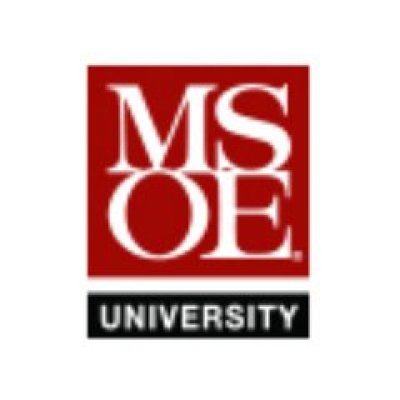Kerry Widder, Ph.D.
Associate Professor Milwaukee School of Engineering
- Milwaukee WI
Dr. Kerry Widder's areas of expertise include electrical engineering and computer hardware.

Milwaukee School of Engineering
View more experts managed by Milwaukee School of Engineering
Education, Licensure and Certification
Ph.D.
Electrical Engineering
University of Wisconsin-Madison
2011
M.S.
Electrical Engineering
Marquette University
1984
B.S.
Electrical Engineering
Marquette University
1983
Biography
Areas of Expertise
Accomplishments
Gerald Holdridge Excellence in Teaching Award
2007
Affiliations
- Institute of Electrical and Electronics Engineers (IEEE) : Senior Member
- American Society for Engineering Education (ASEE) : Member
Social
Event and Speaking Appearances
Light and Lively – Using Creativity and Humor in the Classroom
ASEE North Midwest Section Conference, Minneapolis, Minnesota, 2017
Impact of a First- and Second-year Culminating Experience on Student Learning in an Electrical Engineering Curriculum
ASEE Annual Conference and Exposition, Seattle, Washington, 2015
Selected Publications
Light and Lively – Using Creativity and Humor in the Classroom
ASEE North Midwest Section ConferenceWidder, K.R.
2017
Impact of a First- and Second-year Culminating Experience on Student Learning in an Electrical Engineering Curriculum
ASEE Annual Conference & ExpositionPrust, C.J., Kelnhofer, R.W., Mossbrucker, J., Widder, K.R., Tran, H.V., Williams, S.M.
2015
This paper presents findings from an impact study of a lower division student experience within an undergraduate electrical engineering curriculum. This experience, culminating in the second year of the curriculum, is integrated across multiple first and second year courses and includes elements commonly found in senior-level capstone project courses. An introductory programming course utilizing an embedded platform is the first course in the sequence. The final course in the sequence requires students to design, build, and test an autonomous mobile robot. Through a series of milestones, students systematically complete both the hardware and embedded software tasks required for the project. The final milestone involves an industry-sponsored event where the entire student cohort participates in a robot competition.For a number of years, anecdotal evidence has suggested that the course sequence has significant positive impacts on student experience throughout the curriculum. It has been postulated that this experience results in significant knowledge gain, reinforces their decision to pursue a career in electrical engineering, and builds camaraderie amongst the student cohort. A study was conducted to better understand these potential impacts. Part 1of the study used correlation analysis to determine the relationship between student grades in the project course sequence and other courses in the curriculum, as well as key metrics such as GPA. Part 2 was an ethnological study in which students and recent graduates were asked a variety of questions regarding the impact of the experience on other courses, on their competency in curricular outcomes, and on their overall experience within the academic program. This paper describes the course structure, the current implementation which has evolved over many years of offerings, and presents assessment results indicating its impact on student performance and learning in the remainder of the curriculum.
Using Shadowing to Improve New Faculty Acclimation
ASEE Annual Conference & ExpositionWilliams, S.M., Hasker, R.W., Holland, S.S., Livingston, A.R., Widder, K.R., Yoder, J.A.
2014
A shadowing program for assisting new faculty members in becoming successful educators attheir new institution is described. This program aims to foster a dialogue between new facultyand seasoned colleagues, providing opportunities for sharing lessons learned through experience.At the beginning, a new faculty member observes lectures delivered by a colleague teachinganother section of their course, providing practical examples of how the institution’sexpectations translate into practice, as well as pedagogical ideas for effective instruction.Reciprocal observation by the seasoned faculty member provides early feedback to the newfaculty member that is valuable in getting off to a good start. Details of the structure of theshadowing program are presented. Five case studies are offered by faculty who went through theprogram. They share their experiences in how the program was effective for them and in how itcould be improved.
Analogy and Humor as Tools for Understanding and Retention
ASEE IL-IN Section ConferenceWidder, K.R., Will, J.D.
2013
Best practices for teaching require the instructor to endeavor to help the student learn, not just for the instructor to deliver content. Student learning involves gaining understanding of concepts and developing the ability to apply those concepts to problems, but also retaining these abilities. Many excellent mechanisms for achieving these outcomes have been developed, including techniques such as active learning and problem-based learning. This paper proposes the use of analogies and humor as complementary techniques for increasing the student's understanding of concepts and promoting their retention of those concepts. We give several illustrative examples, as well as an assessment of the effectiveness of these techniques in two courses where they were applied.

